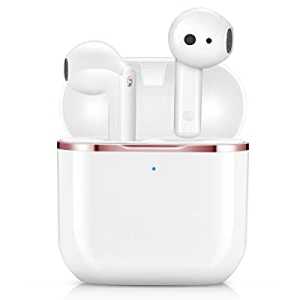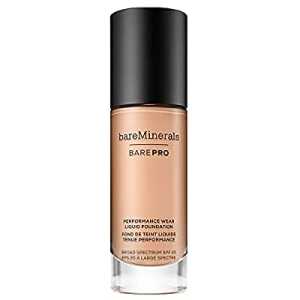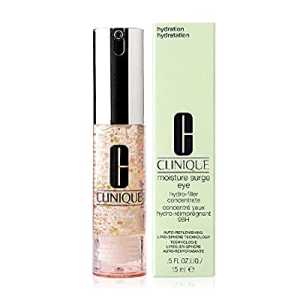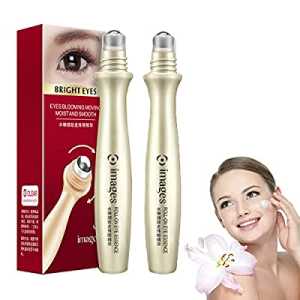
Essential Dental Care Tips For Seniors To Maintain Oral Health

Maintaining good dental health is crucial as we age, even though it often receives less attention than other aspects of senior health care. Dental care for seniors is essential not only for preserving a radiant smile but also for supporting overall health. Older adults frequently face oral health issues such as tooth decay, gum disease, and tooth loss, all of which can significantly impact their quality of life. Additionally, conditions like oral cancer and dry mouth present unique challenges.
In this article, Dr. Girhe Dental, a top dental clinic in Aurangabad, will explore the key components of senior dental care, covering common problems, daily hygiene tips, and the importance of regular dental check-ups. We aim to help seniors maintain a healthy and confident smile throughout their golden years.
The Importance of Oral Health for Seniors
Oral health is essential for general health, especially in elderly persons. Poor oral hygiene can cause infections, gum disease, and tooth loss, impairing speech, eating, and even self-esteem. Other health problems like diabetes, heart disease, and respiratory infections have also been connected to poor dental health.
Common Oral Health Issues Among Seniors
This section will examine the most common oral health issues in seniors.
- Tooth Decay
Tooth decay is a typical concern among older adults due to various factors. With aging, the risk of cavities increases as the enamel, the outer protective layer of teeth, weakens. Furthermore, many seniors suffer from dry mouth, often resulting from medications or chronic illnesses, which decreases saliva production and its natural defense against tooth decay. Changes in diet, like a rise in sugary food or beverage consumption, also play a role in this issue. Regular dental visits and good oral hygiene routines are crucial for managing and preventing tooth decay in older adults.
- Gum Disease
An infection that affects the gums and the bones that support the teeth is gum disease, often known as periodontal disease. If left untreated, it can result in tooth loss and is more prevalent in older persons. Plaque accumulation is the first sign of gum disease and, if left unchecked and untreated by routine brushing and expert cleanings, can solidify into tartar. Bad breath, swelling, and bleeding gums are among the symptoms. Gum disease can exacerbate other conditions like diabetes and heart disease if it is not treated. Early intervention and regular dental care are essential for the management of gum disease.
- Tooth Loss
Advanced tooth decay, periodontal disease, and injuries are among the factors that can lead to tooth loss in older adults. If not addressed, the absence of teeth can affect speech, chewing abilities, and self-confidence and lead to further oral health issues. Treatment options like dental implants, bridges, and dentures can significantly improve quality of life by restoring both aesthetics and functionality. Routine dental visits can help avoid tooth loss through early detection and treatment of underlying issues.
- Dry Mouth (Xerostomia)
Seniors frequently experience xerostomia, or dry mouth, which is frequently brought on by drugs or illnesses. Saliva is necessary for digestion, acid neutralization, and tooth decay prevention. In addition to increasing the risk of dental decay and gum disease, a lack of saliva can make it difficult to chew, swallow, and speak. Some remedies include using saliva replacements, staying hydrated, and avoiding meals and drinks that can worsen dryness—like alcohol and caffeine.
- Oral Cancer
Using tobacco, excessive alcohol consumption, and extended sun exposure (related to lip cancer) are risk factors for oral cancer, a significant concern for elderly individuals. Signs may consist of lumps, difficulty swallowing, or wounds that do not heal. Effective treatment depends on early identification, which can be accomplished through regular dental check-ups. The significance of routine dental checkups in the early diagnosis and treatment of oral cancer is emphasized by the fact that dentists can do screens and biopsies if any questionable regions are discovered.
Some Essential Dental Care Tips
1. Brush Twice a Day with a Fluoride Toothpaste
One of the easiest yet most useful ways to improve oral health is by brushing your teeth twice a day. Use a fluoride toothpaste to help support tooth enamel and prevent cavities. Fluoride is especially important for seniors, as it helps remineralize areas of the teeth that may have weakened.
Make sure to use a soft-bristled toothbrush, which is gentler on gums and may become more sensitive as you age. Electric toothbrushes can also be helpful, specifically for those with limited mobility in their hands or wrists, as they offer more thorough cleaning with less movement.
2. Don’t Forget to Floss Daily
Brushing alone cannot eliminate all the plaque and food particles between your teeth' tiny gaps, so flossing is necessary. Flossing once a day prevents gum disease by cleaning the tight spaces between teeth and along the gumline.
Floss picks, water flossers, or interdental brushes may be easier alternatives for seniors with agility issues. These tools remove plaque and debris between teeth without requiring as much hand control as traditional floss.
3. Stay Hydrated to Combat Dry Mouth
Dry mouth, or xerostomia, is a common problem among seniors, often induced by medications or certain health conditions. Saliva plays an essential role in keeping the mouth clean and preventing cavities by washing away food particles and bacteria. When saliva production declines, tooth decay, and gum disease risk increases.
To fight dry mouth, drink plenty of water throughout the day. You can also suck on sugar-free candies or chew sugar-free gum to stimulate saliva production. If dry mouth is a persistent issue, talk to your dentist about artificial saliva products or mouthwashes designed to keep your mouth moist.
4. Schedule Regular Dental Checkups
Visiting your dentist regularly is one of the most important steps you can take to maintain your oral health. Dentists can identify issues like cavities, gum disease, and oral cancer in their early stages and make them easier to treat. Seniors should aim to visit the dentist every six months or more frequently if they have specific dental concerns.
Your dentist may also suggest professional cleanings to remove plaque and tartar buildup that brushing and flossing alone cannot eliminate. Regular cleanings are especially important for seniors, as gum disease and tooth decay mostly occur in older adults.
5. Pay Attention to Gum Health
One of the most common oral health issues among the elderly is gum disease, which can result in tooth loss if left untreated. Red, swollen, or bleeding gums are early indicators of gum disease. You should see your dentist immediately if you experience any of these symptoms.
Good oral hygiene, which includes brushing, flossing, and routine dental checkups, can avoid gum disease. Your dentist might also advise using an antimicrobial mouthwash to lessen inflammation and plaque.
6. Maintain a Balanced Diet for Healthy Teeth and Gums
A balanced diet is essential for both general and dental health. Calcium-rich meals, such as dairy products, leafy greens, and fortified foods, support healthy teeth. Vitamin D aids in the body's efficient absorption of calcium and is present in sunlight and some meals, such as fatty fish.
Additionally, avoid sugary meals and beverages, as these may contribute to tooth damage. Fruits, veggies, cheese, and nuts are healthy snacks that are good for your body and less likely to cause cavities.
7. Use Dentures and Dental Appliances Properly
Many seniors rely on dentures or other dental appliances, such as bridges and implants, to replace missing teeth. While these devices improve quality of life, they also require special care to maintain oral health and the appliances' longevity.
If you wear dentures, clean them daily using a brush and a non-abrasive cleaner. Remove your dentures at night to give your gums a rest, and soak them in water to keep them moist.
- Quit Smoking and Limit Alcohol Consumption
Oral health can suffer greatly from smoking and drinking, especially in older adults. While excessive drinking can dry up the mouth and cause tooth decay and gum issues, smoking boosts the risk of gum disease, tooth loss, and oral cancer.
Improving dental health requires reducing alcohol use and quitting smoking. Consult your physician or dentist about smoking cessation programs or techniques if you need assistance quitting.
9. Monitor Medications That Affect Oral Health
Many seniors take medications that can have side effects impacting oral health, such as dry mouth or gum swelling. Common medications that affect oral health include antihistamines, blood pressure medications, and certain painkillers.
Talk to your doctor or dentist if you notice any difference in your oral health after starting a new medication. They may recommend ways to counteract the side effects, such as using saliva substitutes, adjusting your medication schedule, or prescribing a different drug that is less likely to cause oral problems.
Conclusion
In conclusion, taking care of oral health in seniors is essential as it significantly affects their overall well-being. By implementing daily dental care practices, such as brushing, flossing, staying hydrated, and scheduling regular dental checkups, seniors can save their teeth and gums from common issues like tooth decay, gum disease, and dry mouth.
Attention to a balanced diet, proper use of dental appliances, and addressing the effects of medications further enhance oral health. These simple yet essential steps contribute to a healthy smile and a better quality of life for seniors. If you are looking for a dental clinic in Aurangabad, look no further than Dr. Girhe's, your trusted family dentist.
Author: Dr. Girhe's Dental Clinic
Address: Kamgar Chowk, Prabodhankar Thakare Nagar, N 2, Cidco, Aurangabad, Maharashtra 431007
Contact No: Mob.7798077682
Social Links:
https://www.facebook.com/drgirhecraniofacial/
https://www.instagram.com/girhedentalclinic/
Author Bio
Dr. Girhe's Dental Clinic in Aurangabad offers specialized dental care with a focus on oral cancer treatment, advanced procedures, and compassionate patient care. With a team of skilled professionals and state-of-the-art technology, the clinic is dedicated to providing tailored solutions for optimal oral health and restoring confident smiles.
Clinic Name: Dr. Girhe's Dental Clinic
Address: Kamgar Chowk, Prabodhankar Thakare Nagar, N 2, Cidco, Aurangabad, Maharashtra 431007 Contact Number: Mob.7798077682
Social Links: https://www.facebook.com/drgirhecraniofacial/ https://www.instagram.com/girhedentalclinic/
Article Comments
No Comments!
At present there are zero comments on this article.
Why not be the first to make a comment?
Similar Articles
Search Pages
Upgrade User Account
Article Categories
There are zero sub-categories in this parent category.
There are zero sub-categories in this parent category.











